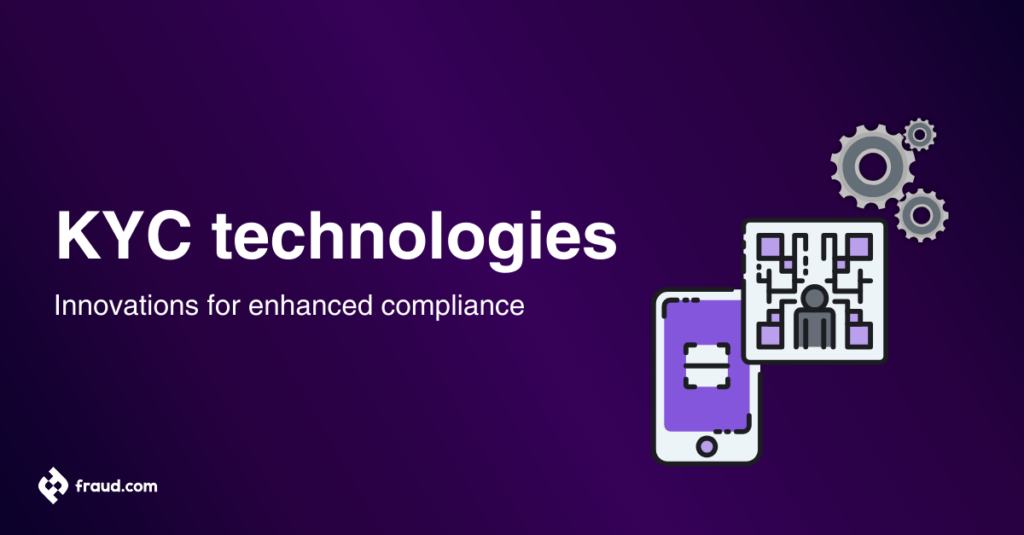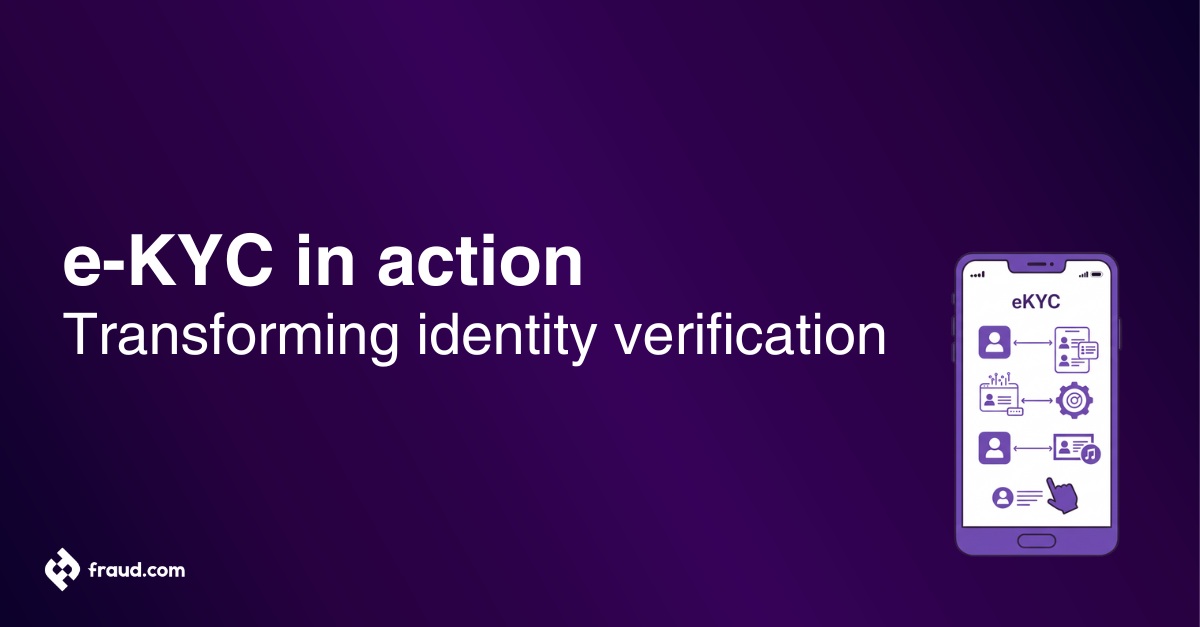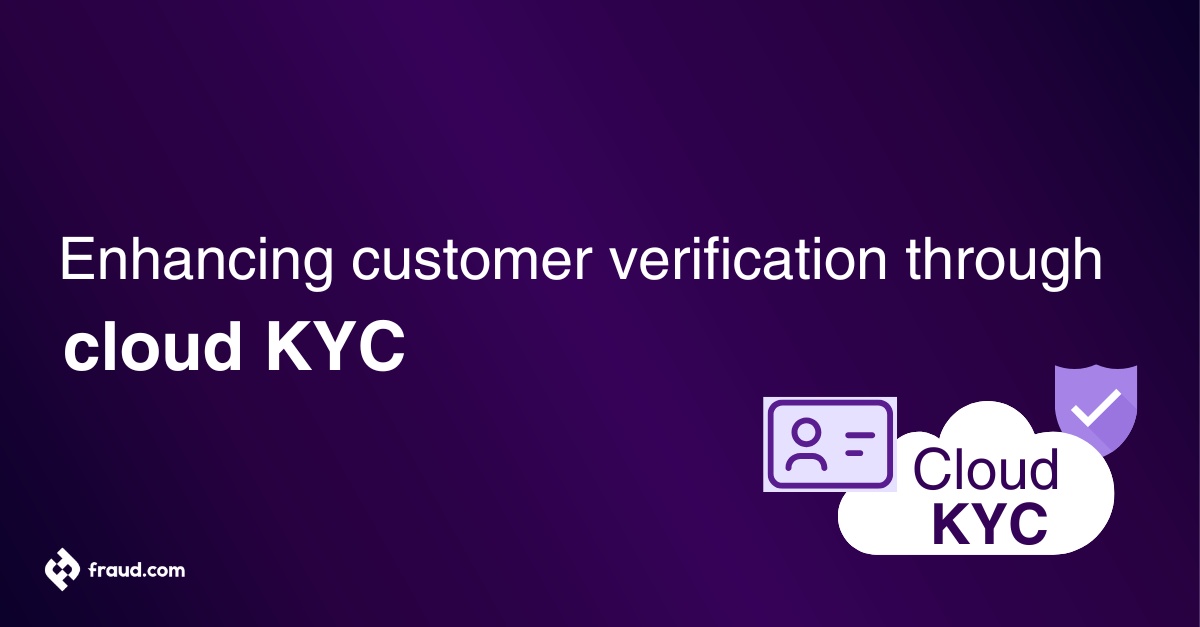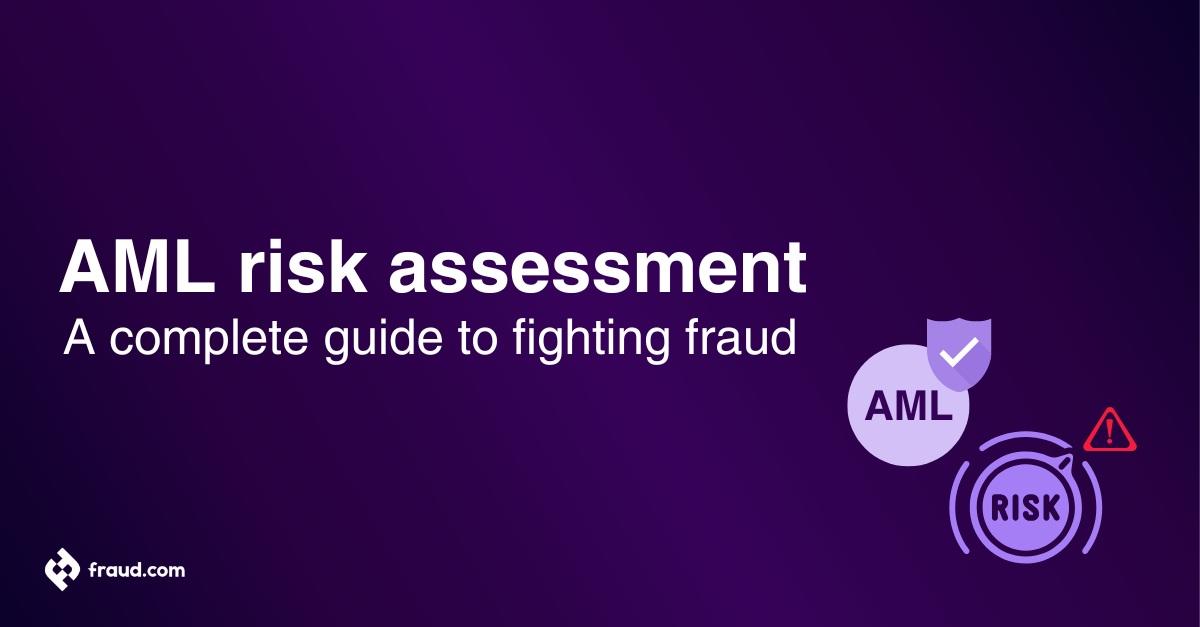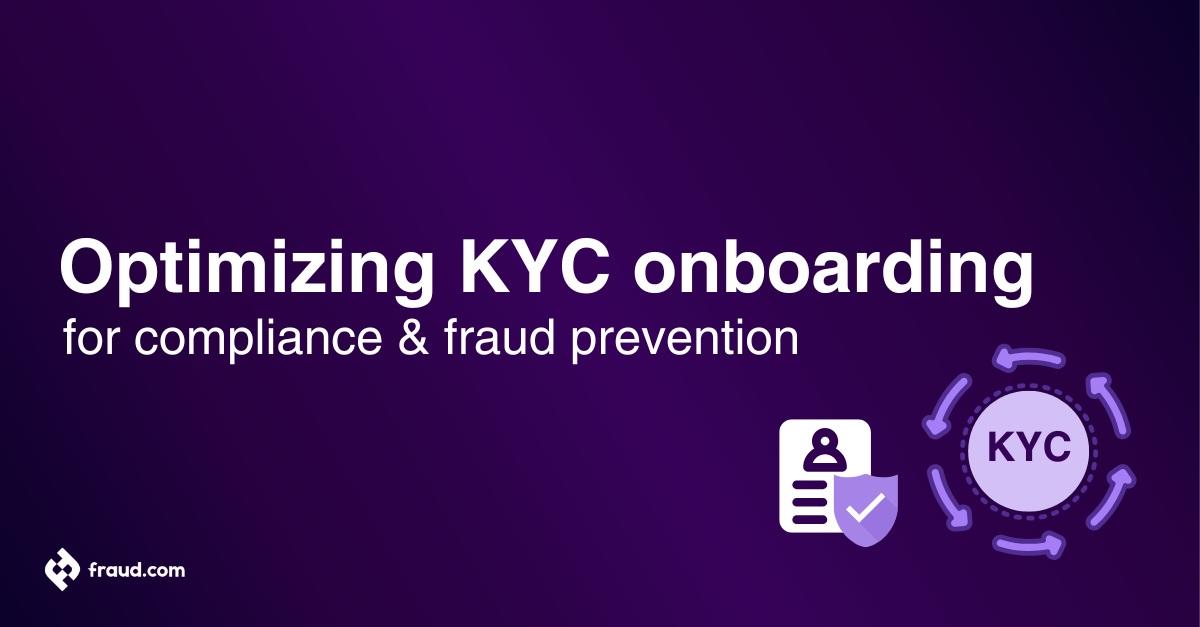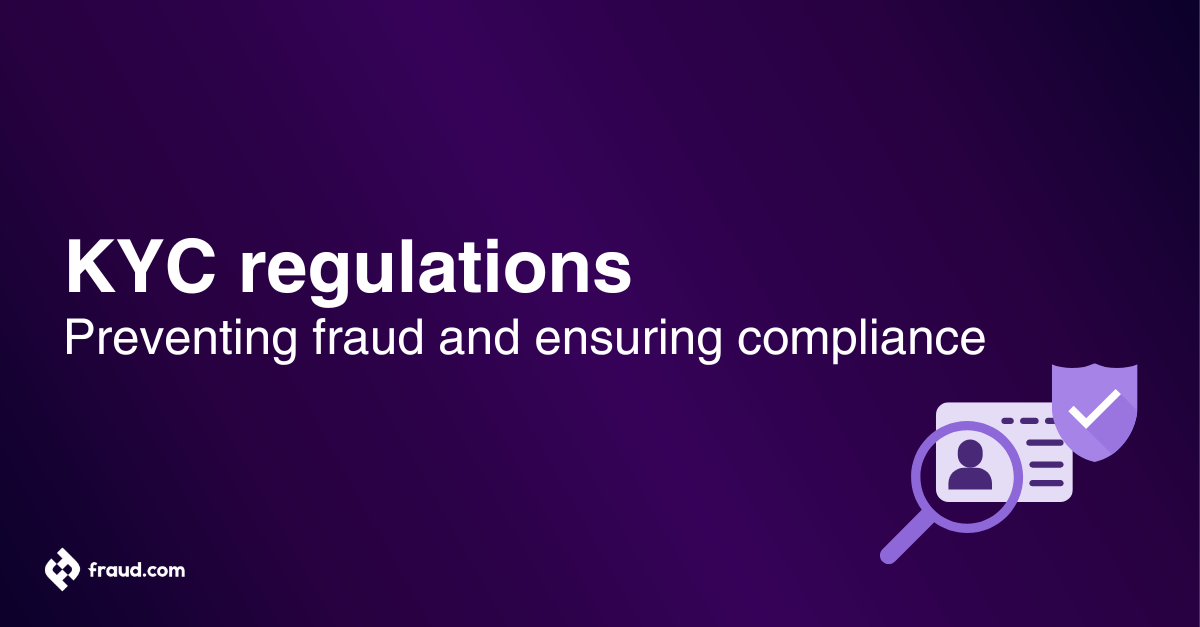The world of financial services is undergoing a significant transformation, and at the heart of this evolution are innovations in Know Your Customer (KYC) technologies. Know Your Customer, an integral part of compliance for banks and financial institutions is essential for verifying the identities of customers and detecting potential fraud. As regulations become stricter and the risk landscape more complex, Know Your Customer technologies are adapting and evolving to ensure enhanced compliance, including ongoing monitoring.
In this article, we will explore the latest advancements in KYC technologies and their multifaceted benefits in achieving enhanced compliance in the ever-evolving world of financial services.
Table of Contents
ToggleWhat is KYC (Know Your Customer)
In the ever-evolving landscape of financial services, KYC, an acronym for Know Your Customer, stands as a cornerstone principle. It represents a set of essential procedures and practices through which businesses meticulously verify a customer and authenticate them, including the submission of KYC documents. In the financial realm, particularly for banks and financial institutions, KYC is far from a mere formality; it is a fundamental and non-negotiable practice.
In essence, Know Your Customer is the bedrock upon which the financial world operates securely, ethically, and legally. It signifies a commitment to maintaining the highest standards of integrity while delivering financial services.
Traditional Know Your Customer processes involve manual checks and paperwork, which can be time-consuming, costly, and prone to errors. In today’s digital age, customers expect a seamless onboarding experience, and regulators demand more rigorous scrutiny. This has led to the development of innovative Know Your Customertechnologies that offer faster, more accurate, and cost-effective solutions, as part of KYC requirements.
Innovations in KYC technologies
In the ever-evolving landscape of financial services, Know Your Customer (KYC) technologies stand as a critical pillar in safeguarding financial systems and preventing money laundering, terrorism and many other types of fraud. As the identity verification regulatory landscape becomes more stringent and complex, KYC technologies continue to adapt and evolve to ensure compliance.
Innovations, which are pivotal for Anti-Money Laundering (AML) regulated institutions under the Patriot Act, Customer Identification Program (CIP), and Customer Due Diligence (CDD) requirements, offer multifaceted benefits, from enhancing identity verification to ensuring ongoing monitoring and alignment with evolving regulations.
Advancements in Know Your Customer technologies have significantly improved the accuracy and security of identity verification processes. Some notable advancements in KYC technologies are:
- Liveness detection: Liveness detection is a pivotal KYC advancement ensuring customer identity authenticity by confirming their physical presence. It prevents static images or recordings and uses techniques like facial movement analysis or interactive challenges.
- Voice biometrics: Voice biometrics is an innovative method of analyzing unique vocal features, like pitch and tone, for identity verification. Enhances security, particularly in remote identity checks.
- Face recognition: Facial recognition verifies identity by analyzing facial features and accurately matching live images to official IDs.
- Document verification: KYC systems auto-extract and verify data from identity documents like passports and ID cards. This relies on technologies such as OCR, NFC and machine learning for document authenticity.
- NFC technology: NFC (Near Field Communication) technology streamlines data transfer for KYC verification, improving efficiency and accuracy, and providing a secure and swift means of sharing essential customer information during the identity verification process.
- Blockchain for data security: Blockchain enhances data security in KYC solutions by securely storing and sharing customer data while ensuring data integrity and meeting regulatory requirements. It also strengthens the verification of customer information such as proof of address, offering financial institutions a tamper-proof system for reliable data, satisfying CDD requirements.
- Artificial Intelligence (AI) and Machine Learning (ML): AI and ML are used to analyze vast datasets and identify patterns or anomalies, aiding in risk assessment and fraud detection during the KYC process. These technologies make KYC more efficient and effective.
- Electronic ID (eID) verification: Electronic ID verification allows customers to confirm their identity online using government-issued electronic IDs. This streamlined process reduces the need for physical documents and enhances security during the KYC process.
- RegTech solutions: Regulatory technology (RegTech) is playing an increasing role in KYC compliance. RegTech solutions automate many aspects of the customer due diligence process, ensuring that KYC processes remain aligned with evolving regulations while offering ongoing monitoring capabilities.
- Behavioural biometrics: Behavioral biometrics analyze user behaviour patterns, such as typing speed and keystroke dynamics, to verify identity. This technology is particularly useful in continuous authentication and fraud prevention during customer interactions.
- Enhanced identity verification: Biometric Verification is not just about improving identity verification; it significantly raises the bar. By using facial recognition, fingerprint scanning, and iris recognition, financial institutions can ensure that the identities they verify are accurate and difficult to forge, thereby meeting strong CDD requirements.
- Advanced anti-fraud tools: AI and Machine Learning offer a decisive edge in countering fraud by rapidly detecting anomalies in vast customer data, bolstering real-time fraud and money laundering prevention, and ensuring AML compliance.
- Efficient and secure KYC: Electronic ID (eID) simplifies KYC by minimizing paperwork, allowing secure online identity verification with government-issued IDs, and enhancing both security and efficiency.
- RegTech for ongoing compliance: RegTech solutions revolutionize KYC compliance, enabling continuous monitoring and adapting processes to evolving regulations, reducing non-compliance risks, and fortifying adherence to CDD and AML regulations.
In conclusion, the innovations in KYC technologies not only enhance identity verification but also serve as potent tools in the prevention of financial crimes and in meeting stringent CIP, CDD, and AML-regulated requirements. These advancements streamline the KYC process, enhance security, and ensure ongoing monitoring and alignment with evolving regulations, ultimately fortifying the financial industry’s commitment to integrity, security, and legal compliance.
Benefits of innovative KYC technologies
The adoption of these innovative KYC technologies offers several advantages for financial institutions:
- Enhanced accuracy: Biometric verification and AI-driven systems reduce the margin of error in customer identification and fraud detection, ensuring enhanced compliance.
- Efficiency: KYC technologies expedite the digital onboarding process, enhancing convenience for customers and cost-effectiveness for banks.
- Improved compliance: By remaining current with the latest regulations and automating compliance checks, financial institutions consistently meet required standards.
- Reduced fraud and risk: Advanced technologies adeptly identify unusual activities and potential risks, effectively reducing the threat of fraud and money laundering.
- Customer-centric approach: Innovative KYC technologies offer a user-friendly, seamless onboarding experience for customers.
- Regulatory compliance: KYC procedures primarily align with stringent regulatory requirements and guidelines, ensuring lawful operation.
- Preventing financial crimes: KYC acts as a robust safeguard against various financial crimes, including money laundering and identity fraud.
- Establishing trust: Trust is paramount in financial services; KYC instils trust and fosters a secure and reliable environment for transactions.
- Risk mitigation: KYC procedures mitigate inherent risks in financial operations through in-depth customer knowledge and tailored assessment.
While KYC technologies have come a long way, there are challenges to address. Data privacy, cybersecurity, and regulatory alignment remain key concerns. Additionally, as the technology continues to advance, financial institutions must ensure that they keep their KYC processes up-to-date to meet the evolving compliance requirements, including ongoing monitoring.
Looking ahead, we can expect more integration of KYC technologies into the wider financial ecosystem. These technologies will play a pivotal role in financial services’ ongoing digital transformation, ensuring not only compliance but also the safety and security of the financial system. As customer expectations continue to rise, financial institutions that embrace innovative KYC technologies will find themselves better positioned to meet these demands and remain compliant in a rapidly changing regulatory landscape.
Identity verification by Udentify
Udentify, a leading innovator in the field of KYC technologies, has harnessed the power of liveness detection, biometric authentication, and facial recognition to provide cutting-edge identity verification. These advancements ensure real-time and robust customer identity authentication, meeting the highest compliance standards. Udentify’s technology offers an unparalleled level of security and accuracy, making it an ideal choice for financial institutions looking to enhance their KYC processes. With a seamless user experience and stringent fraud prevention measures, Udentify is at the forefront of the evolution in KYC technologies, making it an indispensable tool for banks and financial institutions striving to meet robust regulatory requirements while delivering a secure and efficient onboarding process for their customers.

